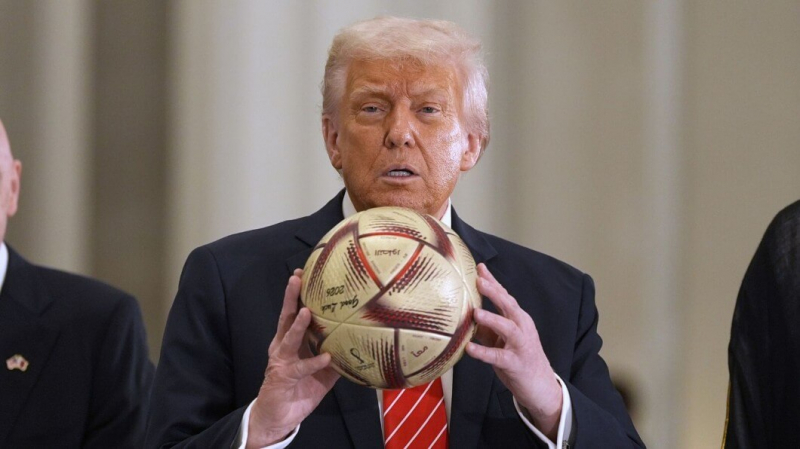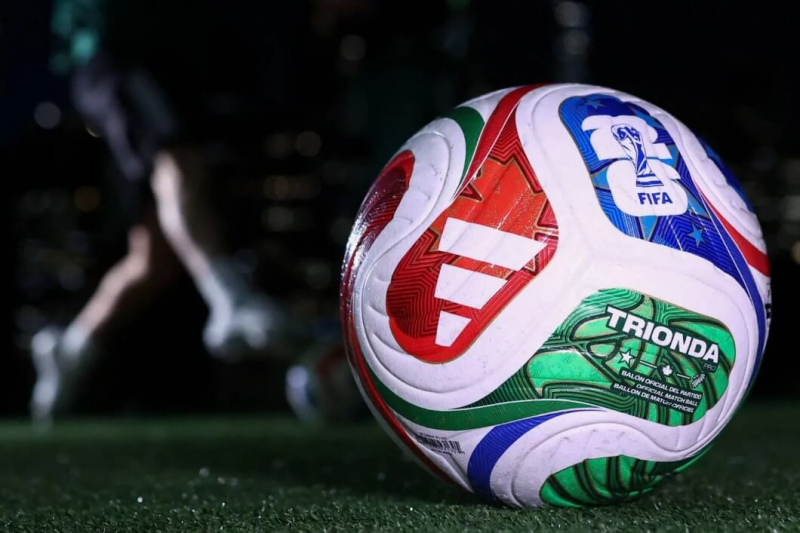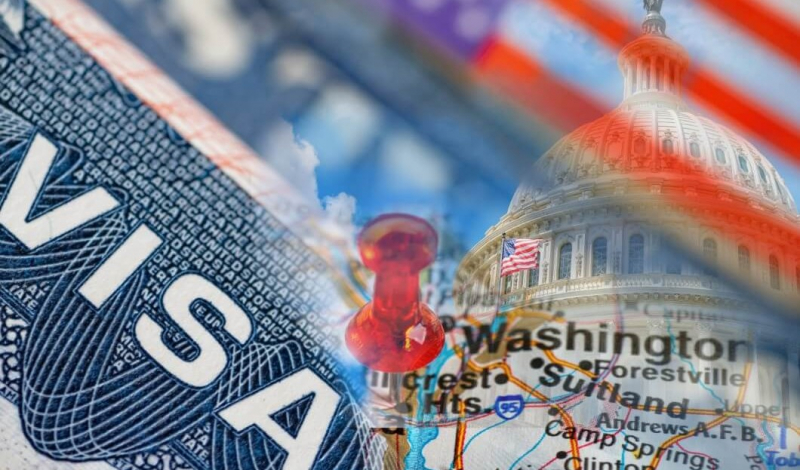With the 2026 FIFA World Cup drawing closer, the United States is offering a significant gesture to soccer enthusiasts worldwide: a simplified visa process aimed at ensuring ticket holders can easily cross borders and catch every moment. President Donald Trump and FIFA President Gianni Infantino announced the “FIFA Pass” on November 17, 2025, promising priority appointments for applicants. This move addresses concerns that America’s stricter immigration policies might deter international fans.
This initiative is unfolding at a crucial juncture for the tournament, co-hosted by the US, Mexico, and Canada from June 11 to July 19, 2026. With an unprecedented 48 teams and 104 matches—making it the biggest World Cup ever—organizers anticipate 5 to 10 million visitors filling stadiums across North America. Eleven of the 16 host cities are in the US, including major hubs like Los Angeles, New York/New Jersey, Dallas, and Miami, which will host the final. Already, 34 nations have qualified, including powerhouses such as France, Brazil, and Argentina, setting the stage for a global event that could surpass the 1994 US-hosted tournament in attendance and economic impact.
The ‘FIFA Pass’: Bypassing Long Queues
The “FIFA Prioritized Appointment Scheduling System” enables verified ticket buyers—those who purchased directly through official FIFA channels—to request expedited visa interviews at US embassies and consulates around the globe. During the announcement at the Oval Office, Trump, along with Infantino, Secretary of State Marco Rubio, and Homeland Security Secretary Kristi Noem, called it a “game-changer” for dedicated fans. He explained this will “allow ticket holders who have long wait times to request a priority appointment,” urging everyone to “apply right away” to avoid potential holdups.
Infantino supported this, highlighting the program’s role in providing “the best conditions” for attendees. “With this FIFA Pass, we can ensure that those who buy a ticket—who are true football fans—will be able to attend the 2026 FIFA World Cup,” he stated, predicting ticket sales could reach 6 to 7 million. To manage the anticipated influx, the State Department has deployed over 400 extra consular agents globally, effectively doubling staff at essential embassies for application processing.
However, the administration quickly tempered expectations. As Rubio plainly stated during the briefing, “Your ticket is not a visa.” The program simply moves applicants to the front, but they still must complete full background checks, interviews, and may still face denials based on standard criteria, such as security risks or past violations. This reminder emphasizes the program’s limitations: it’s a tool to help facilitate travel, not a complete waiver, within Trump’s broader, tougher stance on immigration.

Navigating Tensions: From Bans to Soccer Diplomacy
The announcement comes amid increased scrutiny of US entry policies. Since early June 2025, the Trump administration had imposed entry bans on citizens from 12 countries—mostly in Africa and the Middle East—and placed restrictions on seven others, citing national security concerns. While officials assured that World Cup teams would be exempt, some issues have already surfaced. For example, Senegal’s women’s basketball team had to cancel a US training camp in late June because of visa delays, a clear example of how even sports exchanges can face challenges.
Click here to preview your posts with PRO themes ››
Critics, including advocates for immigrants, believe the FIFA Pass is just a partial solution. With wait times for US tourist visas already very long in high-demand areas like South Asia and Latin America, the program might strain consular resources in other regions. Trump, never shy about being controversial, has also introduced potential issues by threatening to move matches from “problematic” host cities. He specifically mentioned Seattle—scheduled to host six games under its progressive mayor—warning, “If we think there’s going to be trouble, I would ask Gianni to move that to a different city.” Such comments have been met with resistance from local officials. Though the final decision on venues rests with FIFA, this move suggests a practical approach to diplomacy. The White House FIFA 2026 Task Force, created earlier this year through executive order, is coordinating infrastructure improvements and tourism initiatives, framing the event as a “once-in-a-lifetime opportunity” that coincides with America’s 250th anniversary in 2026. Infantino, a regular visitor to the White House since Trump’s inauguration in January, has lauded this collaboration as a good example of how sports and diplomacy can work together.

What It Means for Fans and the Global Game
For fans planning to see Messi in Miami or Mbappé in Manhattan, the FIFA Pass offers a valuable shortcut. Applications will be processed through a special portal, which will link ticket verification to visa appointments, potentially cutting wait times from six months to just a few weeks in certain instances. Teams already qualified, such as the host nations and major contenders like the US men’s team, are showing great enthusiasm, and the draw on December 5 in Washington, DC, is expected to generate considerable excitement.
Economically, the potential benefits are huge: The tournament could add $5 billion to the US economy, benefiting hotels, airlines, and local businesses in host cities from Atlanta to Vancouver. However, success depends on effective execution. If the Pass works as intended, it could ease concerns about US isolation and transform soccer stadiums into spaces for cultural exchange. On the other hand, if it faces problems or delays, it could negatively impact the Cup’s reputation and discourage future large-scale events.
As Trump noted, ticket sales are already breaking records. With global attention focused on the US, there’s an opportunity to succeed both on the field and in demonstrating that the love of the game can bring people together, even in times of division. So, fans should secure tickets, visit the portal, and start planning. The tournament starts in just seven months, and the visa process might be a little easier now.


